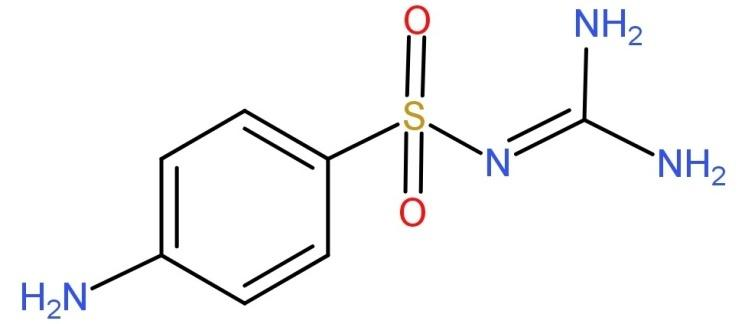Question
Question: Sulphaguanidine is used for the treatment of: (A) Bacillary Dysentery (B) Pneumonia (C) Urina...
Sulphaguanidine is used for the treatment of:
(A) Bacillary Dysentery
(B) Pneumonia
(C) Urinary infection
(D) Brain disorder
Solution
It is a type of sulphonamide which is used for the treatment of enteric infections. It cures a disease which is a type of infection in the intestine that causes bloody diarrhea and can be caused by some parasite or some bacteria.
Complete step by step answer:
-First of all we will see what Sulphaguanidine is.
It is basically an organic compound with a molecular formula of C7H10N4O2S. It is a type of sulphonamide. Its IUPAC name is: 4-Amino-N-(diaminomethylidene) benzenesulfonamide. It is a guanidine derivative of sulphanilamide and is an anti-infective agent which is mostly used for treatment of enteric infections although it is poorly absorbed by the gut.
Its molecular structure is:

-Being an anti-infective agent it is used for the treatment of Bacillary dysentery. It is a type of dysentery caused by a species of bacteria from the family Enterobacteriaceae. It can also be termed as a form of shigellosis infection. It is also one of the most common types of dysentery. Its symptoms include bloody diarrhea, fever, nausea, vomiting, belly cramps, etc.
-For the treatment of Bacillary dysentery sulphaguanidine is prescribed at an amount of about 6-12 g/day in 2 divided doses. This drug is stored at normal room temperature.
So, the correct answer is “Option A”.
Note: Along with its ability to treat bacillary dysentery, sulphaguanidine has some severe side effects also like: kidney damage, liver impairment, heart disease, gastrointestinal effects, hypersensitivity reactions, neurological reactions, jaundice, low blood sugar, intestinal inflammation, etc.
